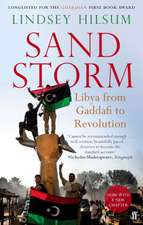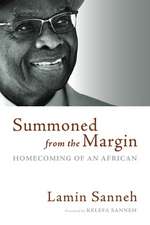South Africa: Inventing the Nation
Autor Alexander Johnstonen Limba Engleză Paperback – 30 iul 2014
| Toate formatele și edițiile | Preț | Express |
|---|---|---|
| Paperback (1) | 182.77 lei 3-5 săpt. | |
| Bloomsbury Publishing – 30 iul 2014 | 182.77 lei 3-5 săpt. | |
| Hardback (1) | 777.06 lei 6-8 săpt. | |
| Bloomsbury Publishing – 30 iul 2014 | 777.06 lei 6-8 săpt. |
Preț: 182.77 lei
Preț vechi: 210.05 lei
-13% Nou
Puncte Express: 274
Preț estimativ în valută:
34.97€ • 36.14$ • 29.09£
34.97€ • 36.14$ • 29.09£
Carte disponibilă
Livrare economică 26 februarie-12 martie
Preluare comenzi: 021 569.72.76
Specificații
ISBN-13: 9781780931920
ISBN-10: 1780931921
Pagini: 368
Dimensiuni: 156 x 234 x 20 mm
Greutate: 0.55 kg
Editura: Bloomsbury Publishing
Colecția Bloomsbury Academic
Seria Inventing the Nation
Locul publicării:London, United Kingdom
ISBN-10: 1780931921
Pagini: 368
Dimensiuni: 156 x 234 x 20 mm
Greutate: 0.55 kg
Editura: Bloomsbury Publishing
Colecția Bloomsbury Academic
Seria Inventing the Nation
Locul publicării:London, United Kingdom
Caracteristici
This book will prove useful to both History and Political Science students
Notă biografică
Alexander Johnston is a research associate of the University of KwaZulu-Natal, where he was Professor of Political Science from 1994 to 2002. Subsequently he was Senior Associate at the Centre for Development and Enterprise in Johannesburg. He currently works as a political risk consultant.
Cuprins
Introduction: The problem of nationalism in post-apartheid South AfricaPart I: The raw material of nation-building1. Who are South Africans?Part II: Nationalism and the end of apartheid2. Legacies3. Improvising the nation: 1990-96Part III: Beyond the improvised nation4. Over the rainbow: from Mandela to Mbeki5. From reconciliation to social cohesionPart IV: South Africa today: coming together or falling apart?6. Do South Africans have a shared life?7. The spectre of anomie: deviance and national citizenship8. Nation-building 20 years onConclusion: The problem of nationalism in South Africa todayGlossaryBibliographyIndex
Recenzii
Alexander Johnston has written a carefully thought-out and impeccable tour de force of sober and sobering analysis. He diagnoses every aspect of the contemporary South African condition with a care and commitment to research and balance that makes other scholars feel ashamed. This is without doubt the best book on South Africa since it attained majority rule.
Alexander Johnston has produced a closely argued and well-written analysis of South Africa's development of a 'serviceable sense of nationhood'. His book is a welcome addition to the burgeoning literature on nationalism. It is innovative, scholarly and detached in tone and substance. Social scientists in a variety of disciplines will find much to admire in this genuinely pioneering study.
An impressive, nuanced study of the South African case, centered on the transition from a long era of harsh authoritarian rule under an apartheid regime monopolized by the white minority to an arrangement adopted two decades ago of black-majority rule under a nominally democratic, multiracial dispensation. The author examines such factors as the perspectives and styles of black leaders Nelson Mandela and Thabo Mbeki, profound social inequity, and pervasive crime and corruption and concludes, fairly, that South Africa persists as a deeply fragmented society, a 'minimum nation' whose identity is far more one of convenience than one of stability that promotes shared values, interests, and goals. The book is well-written and reads well. It merits the attention of students and scholars and of policy makers and practitioners of the political art. Summing Up: Recommended. All readership levels.
Alexander Johnston has produced a closely argued and well-written analysis of South Africa's development of a 'serviceable sense of nationhood'. His book is a welcome addition to the burgeoning literature on nationalism. It is innovative, scholarly and detached in tone and substance. Social scientists in a variety of disciplines will find much to admire in this genuinely pioneering study.
An impressive, nuanced study of the South African case, centered on the transition from a long era of harsh authoritarian rule under an apartheid regime monopolized by the white minority to an arrangement adopted two decades ago of black-majority rule under a nominally democratic, multiracial dispensation. The author examines such factors as the perspectives and styles of black leaders Nelson Mandela and Thabo Mbeki, profound social inequity, and pervasive crime and corruption and concludes, fairly, that South Africa persists as a deeply fragmented society, a 'minimum nation' whose identity is far more one of convenience than one of stability that promotes shared values, interests, and goals. The book is well-written and reads well. It merits the attention of students and scholars and of policy makers and practitioners of the political art. Summing Up: Recommended. All readership levels.
Descriere
This latest volume in the series is a book on nation-building in post-apartheid South Africa.


















